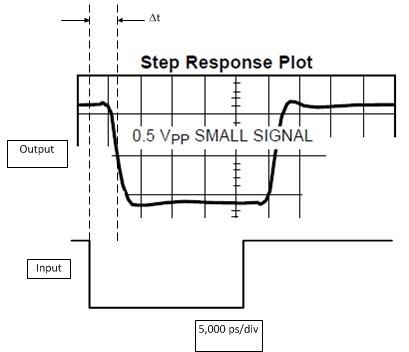Hi all,
Would mind if we ask LMH6505 and LMH6714?
<Q1>
How long is the internal delay from input to output?(ns? us? it means latency with internal processing)
The datasheet P2 shows Time Domain Response 2.1ns(LMH6505) and 1.5ns(LMH6714) , is it the delay time of internal processing?
<Q2>
It is relation to Q1, if there is the internal delay from input to output, how much is the tolerance of the internal delay?
<Q3>
LM6505 is auto gain type, does this(auto gain) affect the internal delay?
And then, LM6717 is set gain 7.92(Vout/Vin=7.92)
Furthermore,
Application: Ultrasonic flowmeters
Constraction of Application: Receiver(sensor) --> LMH6505 --> LMH6505 --> LMH6714 --> ADC --> FPGA
Kind regards,
Hirotaka Matsumoto
-
Ask a related question
What is a related question?A related question is a question created from another question. When the related question is created, it will be automatically linked to the original question.


